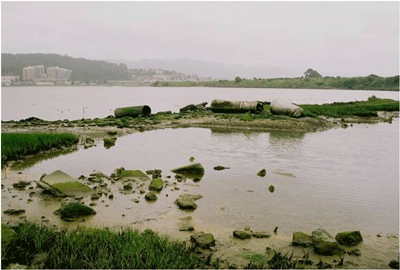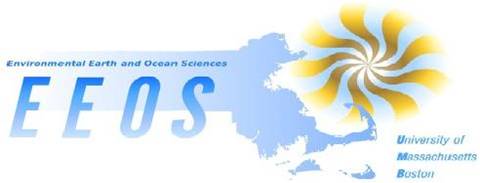| Home | Research | Teaching |
Undergraduate
Coastal and Marine Pollution (EEOS 316) –
This course explores human impacts on coastal and marine ecosystems. Beginning with a brief introduction of coastal and marine ecology and methods for measuring impacts, the course will then investigate the major causes of environmental degradation to coastal and marine ecosystems. Major marine pollutant classes including metals, pesticides, and organic pollutants will be examined by reviewing sources, distribution in coastal ecosystems, toxicology of the pollutants to estuarine and marine organisms, and resulting effects to fisheries, marine communities, and human health. The impacts of nutrient loading, sewage outfalls, oil spills and dredging on environmental quality and the cascading effects on ecosystems will be discussed. Case studies will be used to illustrate important concepts including (1) how different environmental conditions can influence the impact of pollution, and (2) how biological data is collected and used in ecological risk assessment.

Graduate
Environmental Toxicology (EEOS 635) –
The course will impart basic principles of environmental toxicology, focusing on toxicological assessments, types and mechanisms of toxicological response, the properties and effects of specific groups of toxicants that have been released into the environment (e.g., PAH, PCB, pesticides, metals, dioxins/dibenzofurans), and an overview of current topics and issues facing the rather broad field of environmental toxicology. The course will highlight the interdisciplinary nature of environmental toxicology while addressing the basic question “what happens when organisms are exposed to environmental toxicants?”
Toxicological responses and the measurement of these responses will be discussed at all levels of biological organization, from the molecular/biochemical, cellular and organismal up through the population, community and ecosystem. Toxicity testing (acute and chronic) will be examined and toxicological endpoints (e.g., neurological, histopathological, narcotic, behavioral, physiological, carcinogenic, teratogenic, etc.) will be presented. Biochemical toxicology will be particularly emphasized with respect to toxicant absorption, internal partitioning/transport, metabolism/detoxification, sequestering, targeting, and elimination. While the environmental fate of various toxicants will be only briefly covered, the factors that influence bioconcentration and bioaccumulation will be examined in detail. The course will also examine several concerns and approaches that are currently receiving a great deal of attention by environmental toxicologists, including the development and use of biomarkers for identifying environmental contamination and impact, the potential impact of environmental hormones on terrestrial and aquatic organisms, and the melding of ecology and toxicology into the developing field of ecotoxicology.
Estuary Ecology and Management (EEOS 660) –
Estuaries are unique systems where dynamic physical and chemical processes, occurring where freshwater and sea water mix, deeply impact the biology. Estuaries are considered some of the most productive ecosystems; yet they are also the home of large population centers that have exploited their resources for centuries. This course crosses-over the traditional boundaries of the science disciplines to introduce students to the physical, chemical, and biological processes that govern the structure and functioning of ecosystems, how human activities are affecting these processes, and how through risk assessment and better management practices estuarine ecosystem services may be restored and preserved.
Course Objectives:
- Provide a broad overview of the complex physical, biological, and chemical processes that govern the structure and functioning of estuarine ecosystems;
- Identify how human activities are adversely affecting estuarine ecosystems;
- Demonstrate how the Risk Assessment Paradigm is applied to estuarine ecosystems; and
- Increase awareness of the environmental, social, and economic tradeoffs associated with policy and management decisions in estuarine ecology.
